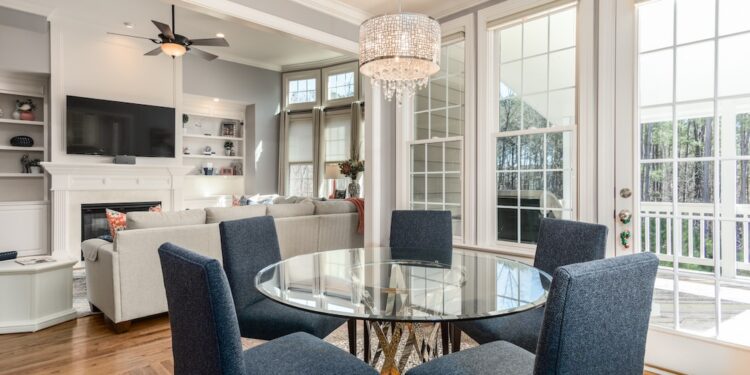The Pros and Cons of Renting vs. Buying a Home
Deciding whether to rent or buy a home is a big decision that can have long-term financial implications. Both options have their advantages and disadvantages, and what works for one person may not work for another. In this blog post, we will explore the pros and cons of renting and buying a home to help you make an informed decision.
Pros of Renting a Home:
1. Flexibility: Renting provides you with the flexibility to move whenever you want, without the hassle of selling a property. If your job requires you to relocate frequently or you enjoy the freedom of exploring different neighborhoods, renting may be a better option.
2. Lower upfront costs: Renting typically requires a smaller upfront payment compared to buying a home. While you may need to pay a security deposit and possibly the first and last month’s rent, these costs are generally lower than a down payment and closing costs associated with purchasing a home.
3. Limited financial responsibility: As a renter, you are not responsible for maintenance and repairs. If an appliance breaks or a leak occurs, it is usually the landlord’s responsibility to fix it. This can save you a significant amount of money and stress in the long run.
4. No property taxes: Another advantage of renting is that you are not responsible for property taxes. Property taxes can be a substantial expense, especially in areas with high property values. Renting allows you to avoid this financial burden.
Cons of Renting a Home:
1. Lack of equity: The major disadvantage of renting is that you do not build equity. The money you spend on rent goes directly to the landlord and does not contribute to your long-term financial growth. This can make it difficult to accumulate wealth and build assets over time.
2. Limited control: Renting a home means you have limited control over the property. You may be subject to rules set by the landlord or property management company, such as restrictions on pets, renovations, and even the length of your lease. This lack of control can be frustrating for some individuals who desire more freedom to make changes to their living environment.
3. Rent increases: One of the biggest drawbacks of renting is the potential for rent increases. Landlords have the ability to raise the rent at the end of a lease term, which can make it challenging to budget and plan for the future. If you are renting in a high-demand area, the possibility of frequent rent hikes is even greater.
Pros of Buying a Home:
1. Building equity: One of the most significant advantages of buying a home is that you are building equity with each mortgage payment. Over time, you can accumulate wealth and potentially gain substantial value in your property. This can provide financial security and a sense of ownership and stability.
2. Freedom to customize: When you own a home, you have the freedom to make changes and customize the property to your liking. You can paint the walls, renovate the kitchen, and create the home of your dreams without seeking permission from a landlord.
3. Tax benefits: Homeownership can provide various tax benefits. Mortgage interest and property taxes are generally tax-deductible, which can reduce your overall tax liability. These deductions can result in significant savings over time.
Cons of Buying a Home:
1. Higher upfront costs: Buying a home typically requires a larger upfront payment compared to renting. In addition to a down payment, you also need to consider closing costs, which can be a substantial amount. These upfront costs can be a barrier for those who cannot afford to make a significant investment at once.
2. Maintenance and repairs: As a homeowner, you are responsible for all maintenance and repairs. This can be both time-consuming and costly, especially if unexpected issues arise. It’s important to budget for home maintenance and factor it into your overall financial plan.
3. Limited flexibility: Purchasing a home is a long-term commitment that limits your flexibility to move. If you need to relocate for work or personal reasons, selling a home can be a time-consuming and potentially costly process. It’s important to consider your long-term plans and whether you are ready to settle in one location.
In conclusion, there are pros and cons to both renting and buying a home. Renting offers flexibility and lower upfront costs but lacks the ability to build equity. Buying a home allows you to build equity, customize your space, and enjoy potential tax benefits but comes with higher upfront costs and long-term commitment. Ultimately, your decision should be based on your financial situation, personal preferences, and long-term goals.















